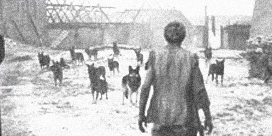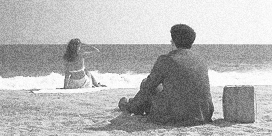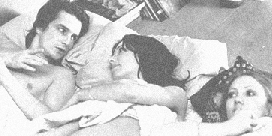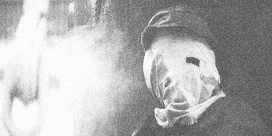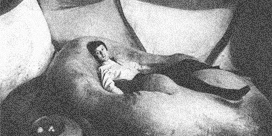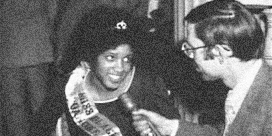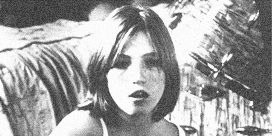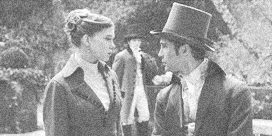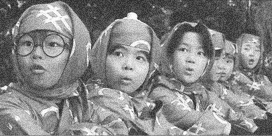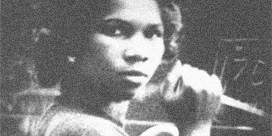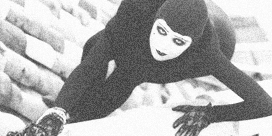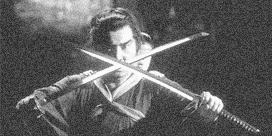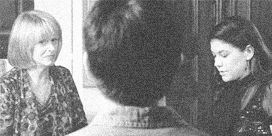February Fifteenth Two-Thousand Eleven
by Rumsey Taylor Prior to seeing Marketa Lazarová, I knew only a few key facts about the film: it was hyperbolically considered one of the best Czechoslovak films ever made, and it was a long and slow black-and-white medieval film—a style to which I am especially drawn, especially during a wintry apex in the U.S. Northeast. I had expected a tone poem, akin to Andrei Rublev, one with the same religious or historical context, which is to say a movie I could watch in excerpts bookending a nap. My attitude was of such repose that I even arrived after the opening credits had finished.
This is the sort of film I experience in a sort of reverie, absorbing its stark, beautiful images and losing sense of the narrative that frames them. Most every Tarkovsky film is like this for me, and I watch them with subdued alertness but total comfort. Unlike other films, in which climaxes operate as prods intent to reassert the viewer’s attention, these are rather mood pieces, non-confrontational art that lulls you into a state of quiet submission.
Frantisek Vlácil’s film, however, was transfixing from its opening moments, and its thrall holds firmly throughout its two-and-a-half hours. Its setting is populated sparsely by earthy fortresses or handmade churches, and replete with beards whitened in frost, rural landscapes laced by a sky of cumulous clouds, and packs of spectral animals that seem urgently in desire of prey. The title refers to a young woman, whose sharp blonde hair contrasts against all around her, who is the daughter of a regional authority. She becomes the target of oppressive group, and her kidnapping is one of the film’s many exclamatory sequences.
In two viewings (the film is available in its entirety on YouTube), I’ve been unable to totally comprehend the film, a response supported by other critiques. Its power is undiminished by this, and the manner of its telling liberally expends narrative in favor of directorial impulses. Every single composition is resolutely precise, and the score – abstract percussion behind choral chants – enhances a sense of dislocation. The medieval story becomes increasingly surreal, and in its duration enables one astonishing sequence after another.
My enthusiastic response to this film is the product of context, as is the case with most of my favorites. It screened at New York’s Lincoln Center as a part of a mini-retrospective on the Czechoslovak director, and on this particular night in mid-February, after an hour-plus commute on the city’s never-enthralling public transit, it was miserably wet and cold. It was the sort of setting that warrants escapism in the form of a comedy that takes place on a beach. I saw a forty-year-old film in a language I can’t begin to comprehend, and one that was assuredly the most appreciated cinematic experience I’ve had in many a moon.
